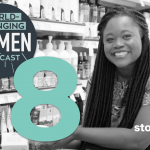Many company leaders say they want their employees to think and act like owners. Companies with broad-based employee-ownership plans, especially those with employee stock ownership plans (ESOPs), actually make them owners. But they also often go further.
Driven by engaged, entrepreneurial employees, employee-owned companies often emerge as industry leaders, pioneering best practices in a range of areas — and getting national recognition for it. For decades, most of the companies that have stock on the Fortune Best 100 Companies to Work For list have had broad-based ownership plans. Just recently, half of the best medium-sized companies, and 40 percent of the small companies, did as well.
The reasons for this are straightforward. Decades of research on what makes broad-based employee ownership plans work has come to a singular conclusion: pairing ownership with open-book management and a decision-making process that emphasizes autonomy and team-based decisions at all levels produces substantially improved performance for companies and their employees. As employee-owned companies attend conferences and network with other employee ownership companies they tend to adopt the best practices others have developed.
The National Center for Employee Ownership’s Innovations in Employee Ownership Award is designed to recognize employee-owned companies that have demonstrated a commitment to promoting employee ownership and innovation in their workplaces. Innovations can come in many forms, including high-involvement management, employee engagement, and community involvement. Let’s look at some recent winners.
High-involvement management
CARGAS SYSTEMS
Cargas Systems is a software and consulting company based in Lancaster, Pennsylvania, with more than 100 employees who specialize in solutions for accounting and operations, sales and marketing, fuel delivery and service, and custom development. More than 70 percent of the business’s employees are shareholders, which has required the personal financial investment of each to a direct stock purchase plan through profit-sharing, bonus distributions, or deductions from pay into a stock purchase savings account for future stock purchases.
Ideas Unlimited is Cargas Systems’ collaborative version of “Shark Tank.” This annual event provides a forum for any team member to deliver a presentation to the executive team about any idea — big, small, or off the wall. A call for ideas goes out before the event, and those wishing to speak submit a topic and brief description. Presentations are scheduled in 20-minute blocks over two or three days depending on the response. Presenters develop their ideas and create a presentation, which can be given by individuals or groups. There is no limit to the number of presentations an employee or group can submit.
The executive team, including the president and CEO and business unit vice presidents, attend every presentation, and all other employees are welcome to sit in. Presentations are also recorded so they can be watched after the event. Each presentation includes time for a Q&A session and discussion so audience members can give feedback. Ideas Unlimited 2017 included presentations about exploring opportunities for the company’s fuel delivery software in Canada, applying for B corporation certification, and using virtual reality in their sales process.
The event has been the launching pad for numerous initiatives, including website redesign, rebranding, and cross-selling. To ensure ideas are acted upon, a follow-up list is sent out after the event. Ideas are divided into categories: those that can be acted on immediately, those that require more development and a dedicated team to lead them, and those that will be part of Cargas’s long-term planning and require more in-depth research and input from the executive team. Team members are assigned to take action on each idea and help see it through to fruition.
NEW BELGIUM BREWING
One-hundred percent employee-owned New Belgium Brewing is one of the largest brewers in the US. New Belgium uses many ownership-culture best practices, including open-book management and short-term incentives based on company performance, but a major piece of the company’s culture comes from something a bit harder to define or duplicate: a story.
A pivotal event occurred in 1998 when the company was considering a switch to wind-based power. The company’s management knew that projecting costs and assessing risks were a necessary part of making a good decision, but they also knew the analytical answer wasn’t enough. Employees had to be on board — so they let them vote. They would help pay for the additional cost because their bonuses would be reduced, and they would have to find solutions to the inevitable glitches involved in any major change.
Simply making the right decision was not enough; the whole workforce needed to believe in the decision. The company helped people educate themselves about wind power and let them weigh their own values. When the time came, the employees voted unanimously to adopt wind power. Making that decision by a vote required an investment of time and effort by everyone at the company. That investment paid off in universal buy-in to the decision itself, and wind power is a success that New Belgium now integrates into the firm’s public identity. The investment also paid off in larger terms: the wind-power decision was a moment of truth where people realized that their role at New Belgium is greater than simply being employees.
But the vote isn’t the end of the story. One of the biggest challenges that high-involvement companies face is: what next? The vote raised expectations, shook things up, and tapped new sources of energy, but that one-time jolt is not enough. The next step needs to be a system change. Today at New Belgium, employees are given regular, detailed information about company and team performance. There are monthly staff meetings and an annual strategic planning meeting that occurs over a few days and involves all of the company’s nearly 800 employees. On the day-to-day level, the company’s POSSE committee (ESOP spelled backward-ish) coordinates employee ideas, such as one that eliminated 12-pack dividers and saved $280,000.
Employee engagement
OLIVER WINERY AND VINEYARDS
Oliver Winery and Vineyards is the oldest winery in Indiana and one of the largest and most modernly equipped winemaking operations in the eastern US. The company produces more than 390,000 cases of wine annually, and each year, more than 200,000 guests visit the Oliver tasting room in Bloomington, Indiana, which was recently ranked by Travel + Leisure as one of the top 25 wineries in the nation. In 2006, the company became 100 percent employee-owned by an ESOP. Today, it employs 100 people across multiple disciplines, from agriculture to marketing and customer service.
Creating a sense of unity among employees is something with which Oliver Winery admitted to having challenges. Wineries have quite a lot of day-to-day operations with a diverse group of employees. With employees working in so many different roles and areas of their business, team-building across departments — so that everyone understands what each area does for the winery — was a big hurdle. In response to their desire to create a bigger sense of unity and community among the various work groups, the Oliver Employee Involvement Committee designed its first annual Oliver Field Day, a one-day event for the whole company to share the “what” and the “why” behind each department.
Staff members from nine different departments prepared and delivered 25-minute presentations. All employees traveled on foot around Oliver Winery’s campus — from the vineyard to the administration building. It was the first time ever that some staff members set foot in the service building or marketing office. At kickoff, Oliver’s committee outlined three achievable goals for every participant: ask questions, learn something new, and take/share photos. They encouraged attendees to share about their experience on social media using the #OliverFieldDay hashtag. All employees divided into teams for the day, then met back for pizza and a wrap-up. During that final session, a live feed of photos and posts from the day streamed. Every attendee received a Field Day T-shirt and a bottle of wine to take home. A long-term employee posted a comment saying, “Wow. I am blown away by everything I’ve learned today about what goes on behind the scenes here, and I’ve been here for years.” After the event, the Oliver Winery team immediately followed up in their staff e-newsletter, the Grapevine, with a photo recap.
Community engagement
TORCH TECHNOLOGIES
Torch Technologies is a 100 percent employee-owned company based in Huntsville, Alabama, that provides a broad range of aerospace and engineering services including planning, execution, performance analysis, design, and reporting. It now has over 700 employees and was named number five on the 2018 Fortune Best Medium-Sized Company to Work For list.
The National Center for Employee Ownership recognized Torch for the creation of an employee-created, employee-managed 501(c)(3) charitable giving foundation called Torch Helps that raises funds through payroll deductions. Employees not only organize and run Torch Helps, but they vote each quarter for at least one major grant to be given to a local charity in the cities they operate in. The company has continued to set new records each year for charitable giving. Torch says the goal is: “to carry the torch for others in our communities by providing financial support to nonprofit organizations designed to aid individuals and families who are financially disadvantaged, lack access to basic health and human services, or are otherwise disadvantaged and require the assistance of others to meet their basic needs for food, clothing, shelter, medical care and other fundamental needs.”
In 2014, Torch pledged $150,000 to help launch the Community Catalyst Fund through the Community Foundation of Huntsville/Madison County Alabama. Huntsville is a hot-bed of successful ESOP companies, and Torch led the effort to encourage employees at these companies, many of whom have sold their shares at substantial gains, to fund the foundation. Overall, Torch has contributed over $3 million to local charities.
HYPERTHERM
Hypertherm is a 100 percent ESOP-owned company based in Hanover, New Hampshire, with more than 1,400 employees. The company designs and manufactures advanced cutting products for use in a variety of industries such as shipbuilding, manufacturing, and automotive repair. Hypertherm is also consistently recognized as one of the best companies to work for. Its no-layoff policy is more than rhetoric; the company has gone to great lengths to make it work. We recognized Hypertherm for an interesting and uncommon transaction design and ESOP design features, but recently Hypertherm has taken the lead in addressing opioid addiction.
In the past, Hypertherm like a lot of companies had a zero-tolerance policy for violating the company’s substance-abuse agreement, which required employees to agree to get treatment and stay clean. Then in March, as snow melted and revealed used syringes in the parking lot, the company realized this was not working. It summoned 140 company leaders to discuss what to do. After consulting with the health care community, they decided to allow employees to continue to work even after relapse as long as they are taking steps towards recovery. Hypertherm works with a variety of local recovery resources to help the employee (who may be reassigned to other jobs that may work better for them as they recover).
Hypertherm workforce development manager Mike McKenney, who had struggled himself with alcoholism, told the Valley News in New Hampshire, “What I want someone who comes to me to understand is that we truly want to help, and just because you’re in this place doesn’t mean we can’t work through it. Empathy is important. The one thing I get to talk about in my story is how willing Hypertherm was to help me, even then. It puts people at ease.”
McKenney says that employees still have to be accountable, but now they have two years to address their problem. Hypertherm has set up a blog where families can share their stories and resources can be listed. McKenney says that many of these employees can be valuable workers and that laying them off is only going to make their issues harder to deal with.
Ownership matters
Many people say that there are myriad ways to give people a sense of ownership other than real ownership, but not one of the strategies that the above companies are doing is unfathomable. It’s worth it for employee-ownership companies to pay special attention, though, because of their tendency to find ways to create genuine employee-driven cultures. After all, if your employees are owners, shouldn’t you be doing work like this?





